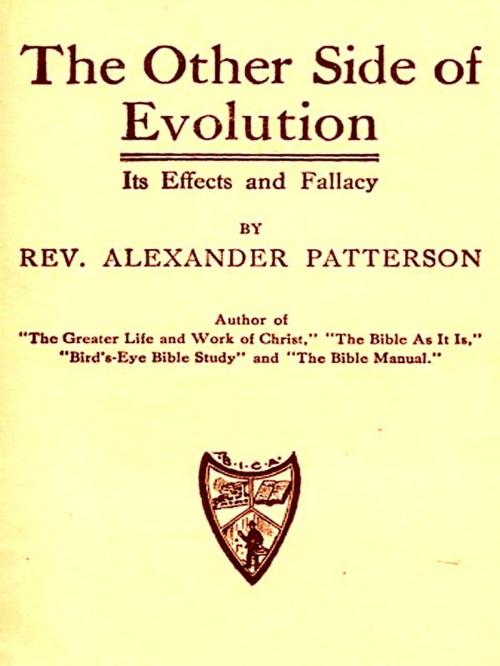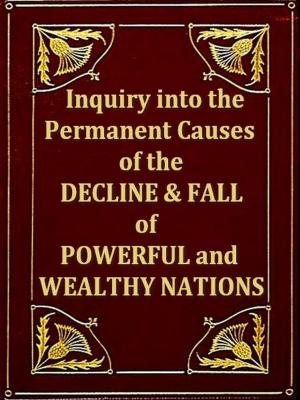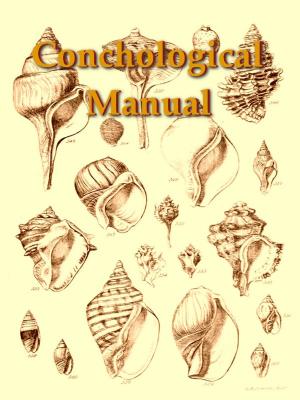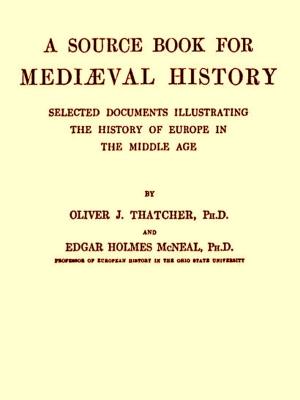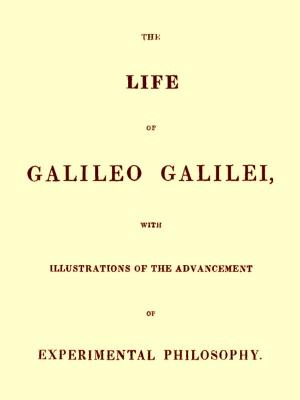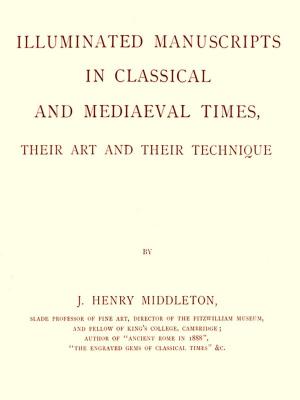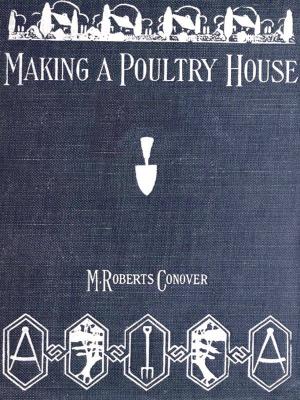| Author: | Alexander Patterson | ISBN: | 1230000208034 |
| Publisher: | VolumesOfValue | Publication: | January 8, 2014 |
| Imprint: | Language: | English |
| Author: | Alexander Patterson |
| ISBN: | 1230000208034 |
| Publisher: | VolumesOfValue |
| Publication: | January 8, 2014 |
| Imprint: | |
| Language: | English |
The Other Side of Evolution
Its Effects and Fallacy
This edition features a linked Table of Contents and Index.
CONTENTS
PREFACE.
Claims of Evolution. — Interest in subject. — Effect on Christian belief. — Opinion of eminent scholars. — Effect on the common man. — Evolution being accepted on exparte evidence. — Question too important to be left to science. — The average man capable of understanding the arguments. — The court of last resort.
INTRODUCTION.
Meaning of Evolution. — Conversational and scientific use of the word. — Le Conte's definition. — Spencer's Spheres of Evolution. — Theistic and Atheistic Evolution. — The origin of man, the vital point. — The Bible account and Darwin's.
CHAPTER I.
EVOLUTION IS AN UNPROVEN THEORY. Nearly all evolutionists admit this. — Citations from Tyndall, Spencer, Huxley, Prof. Conn, Whitney, Dr. J. A. Zahm, Dr. Rudolph Schmidt, and others. — Evolution rejected by many and opposed. — Complaint of Prof. Haeckel on this. — Prof. Virchow's opposition. — List of scientists who do not advocate Evolution. — Discarded theories of the past. — Uncertainty of scientific theories in general.
CHAPTER II.
THE EVOLUTION OF THE UNIVERSE AND EARTH.
The four problems facing Evolution, the origin of matter, of force, the formation and orderly adjustment of the universe and the origin of life. — Evolution makes no attempt at the first two. — Spencer admits it is the unknowable. — Lord Kelvin's testimony. — Prof. George Frederick Wright on the Nebular Hypothesis. — The solar system unique. — The fire-mist and its wonderful contents. — Failure as to origin of life. — Le Conte's theory. — Testimony of Tyndall, Wilson, Conn, against spontaneous generation.
CHAPTER III.
EVOLUTION OF SPECIES.
Evolution's great field. — No case of evolution known —No cause of evolution known. — How evolution originated species. — Argument from Geology. — Geologists opposing it; Sir J. W. Dawson, Sir R. Murchison, Barrande. — Prof. Conn's admissions. — Haeckel's admissions. — The argument from Morphology. — Rudimentary parts. — The Eohippus, "Old Horse." — Argument from classification of species. — No agreed classification. — Evolution's phantom tree. — No changes in Egypt's 4,000 years or prehistoric man's longer time. — Distribution of plants and animals. — Argument from Embryology. — The three-fold argument of Evolution. — Facts opposing Evolution.
CHAPTER IV.
THE EVOLUTION OF MAN.
The vital question. — All evolutionists agree here. — The two accounts of Bible and Evolution. — Arguments from origin of species. — Argument from similarity of structure. — Argument from human characteristics. — Rudimentary organs in man. — The "gill-slits." — How the brute became man. — Prof. Edward Clodd's account of "The Making of a Man." — Morris' description of primeval man. — The Theistic Evolutionist's Adam and how he fell. — The Missing Link. — The Calaveras skull. — Neanderthal skull. — Haeckel's "Pithecanthropus-Erectus." — The Colorado monkey's skeleton. — Croatia skeletons. — Argument from the brain. — Prof. Clodd's story of how man got his brain. — Argument from language. — Prof. Max Mueller's protest. — Argument from prehistoric man.—Antiquity of man. — Testimony as to man's recent origin from Prof. George Frederick Wright, S. R. Pattison, Prof. Friedrich Pfaff, Winchell, Dr. J. A. Zahm.—Argument from uncivilized races. — Argument from history of limits of man's history. — Evolution and religion. — Evolution's ethics. — Christian experience.—Christ and evolution.
CHAPTER V.
EVOLUTION UNSCIENTIFIC AND UNPHILOSOPHICAL.
Four steps necessary to proof, Facts, Classification, Inferences, Verification. — Fails to account for facts. — Has no classification. — False in inferences and [vi]has no verification. — Rests on imagination. — Tyndall's "Scientific Use of the Imagination." — Evolution theDoctrine of Chance revamped and clothed in scientific terms.
CHAPTER VI.
EVOLUTION AND THE BIBLE.
Evolution has no scriptural argument. — The two accounts mutually exclusive. — Bible account appealed to by all Scripture writers as Fact. — Evolution's interpretation of Scripture. — Christ's testimony to the facts of Scripture. — Evolution and Bible doctrines. — Importance of Adam as basis of Scripture doctrine. — Man's state and remedy as given by Evolution and by the Bible. — The future of the Bible and of Evolution. — Evolution in its logical form is Atheism.—Evolution a relic of heathenism.—Testimony of James Freeman Clarke, Sir J.William Dawson.
CHAPTER VII.
THE SPIRITUAL EFFECT OF EVOLUTION.
Must affect the spiritual state. — Effect on candidates for ministry. — Latent effect on faith. — On experimental religion. — Evolution as a state of heart. — A comfortable theory to the impenitent. — Prepares for "isms." — Weakens pulpit power. — Eliminates faith in the supernatural and eternal. — Education's place in modern giving. — Is the last form of unbelief? — The common people and the Gospel of the Cross.
The Other Side of Evolution
Its Effects and Fallacy
This edition features a linked Table of Contents and Index.
CONTENTS
PREFACE.
Claims of Evolution. — Interest in subject. — Effect on Christian belief. — Opinion of eminent scholars. — Effect on the common man. — Evolution being accepted on exparte evidence. — Question too important to be left to science. — The average man capable of understanding the arguments. — The court of last resort.
INTRODUCTION.
Meaning of Evolution. — Conversational and scientific use of the word. — Le Conte's definition. — Spencer's Spheres of Evolution. — Theistic and Atheistic Evolution. — The origin of man, the vital point. — The Bible account and Darwin's.
CHAPTER I.
EVOLUTION IS AN UNPROVEN THEORY. Nearly all evolutionists admit this. — Citations from Tyndall, Spencer, Huxley, Prof. Conn, Whitney, Dr. J. A. Zahm, Dr. Rudolph Schmidt, and others. — Evolution rejected by many and opposed. — Complaint of Prof. Haeckel on this. — Prof. Virchow's opposition. — List of scientists who do not advocate Evolution. — Discarded theories of the past. — Uncertainty of scientific theories in general.
CHAPTER II.
THE EVOLUTION OF THE UNIVERSE AND EARTH.
The four problems facing Evolution, the origin of matter, of force, the formation and orderly adjustment of the universe and the origin of life. — Evolution makes no attempt at the first two. — Spencer admits it is the unknowable. — Lord Kelvin's testimony. — Prof. George Frederick Wright on the Nebular Hypothesis. — The solar system unique. — The fire-mist and its wonderful contents. — Failure as to origin of life. — Le Conte's theory. — Testimony of Tyndall, Wilson, Conn, against spontaneous generation.
CHAPTER III.
EVOLUTION OF SPECIES.
Evolution's great field. — No case of evolution known —No cause of evolution known. — How evolution originated species. — Argument from Geology. — Geologists opposing it; Sir J. W. Dawson, Sir R. Murchison, Barrande. — Prof. Conn's admissions. — Haeckel's admissions. — The argument from Morphology. — Rudimentary parts. — The Eohippus, "Old Horse." — Argument from classification of species. — No agreed classification. — Evolution's phantom tree. — No changes in Egypt's 4,000 years or prehistoric man's longer time. — Distribution of plants and animals. — Argument from Embryology. — The three-fold argument of Evolution. — Facts opposing Evolution.
CHAPTER IV.
THE EVOLUTION OF MAN.
The vital question. — All evolutionists agree here. — The two accounts of Bible and Evolution. — Arguments from origin of species. — Argument from similarity of structure. — Argument from human characteristics. — Rudimentary organs in man. — The "gill-slits." — How the brute became man. — Prof. Edward Clodd's account of "The Making of a Man." — Morris' description of primeval man. — The Theistic Evolutionist's Adam and how he fell. — The Missing Link. — The Calaveras skull. — Neanderthal skull. — Haeckel's "Pithecanthropus-Erectus." — The Colorado monkey's skeleton. — Croatia skeletons. — Argument from the brain. — Prof. Clodd's story of how man got his brain. — Argument from language. — Prof. Max Mueller's protest. — Argument from prehistoric man.—Antiquity of man. — Testimony as to man's recent origin from Prof. George Frederick Wright, S. R. Pattison, Prof. Friedrich Pfaff, Winchell, Dr. J. A. Zahm.—Argument from uncivilized races. — Argument from history of limits of man's history. — Evolution and religion. — Evolution's ethics. — Christian experience.—Christ and evolution.
CHAPTER V.
EVOLUTION UNSCIENTIFIC AND UNPHILOSOPHICAL.
Four steps necessary to proof, Facts, Classification, Inferences, Verification. — Fails to account for facts. — Has no classification. — False in inferences and [vi]has no verification. — Rests on imagination. — Tyndall's "Scientific Use of the Imagination." — Evolution theDoctrine of Chance revamped and clothed in scientific terms.
CHAPTER VI.
EVOLUTION AND THE BIBLE.
Evolution has no scriptural argument. — The two accounts mutually exclusive. — Bible account appealed to by all Scripture writers as Fact. — Evolution's interpretation of Scripture. — Christ's testimony to the facts of Scripture. — Evolution and Bible doctrines. — Importance of Adam as basis of Scripture doctrine. — Man's state and remedy as given by Evolution and by the Bible. — The future of the Bible and of Evolution. — Evolution in its logical form is Atheism.—Evolution a relic of heathenism.—Testimony of James Freeman Clarke, Sir J.William Dawson.
CHAPTER VII.
THE SPIRITUAL EFFECT OF EVOLUTION.
Must affect the spiritual state. — Effect on candidates for ministry. — Latent effect on faith. — On experimental religion. — Evolution as a state of heart. — A comfortable theory to the impenitent. — Prepares for "isms." — Weakens pulpit power. — Eliminates faith in the supernatural and eternal. — Education's place in modern giving. — Is the last form of unbelief? — The common people and the Gospel of the Cross.
